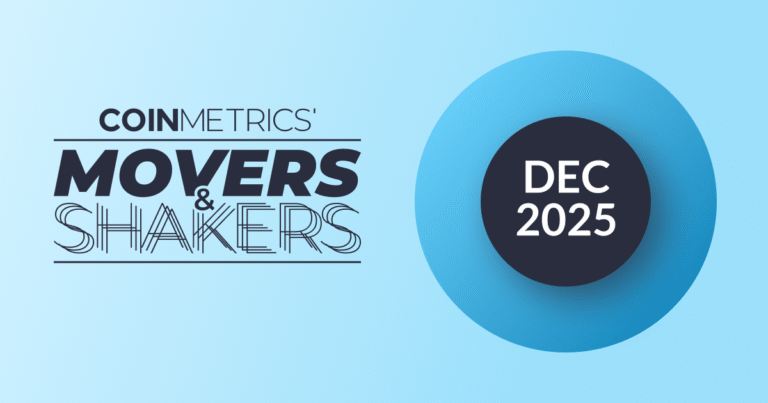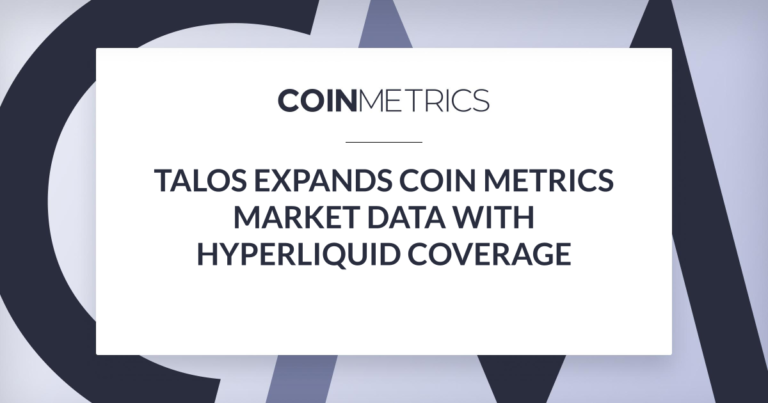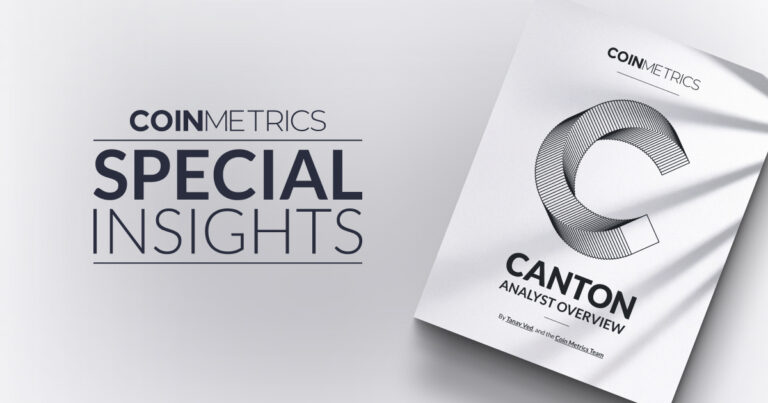Coin Metrics is committed to building the crypto economy on a foundation of truth, providing authentic and accurate data with the highest standards of clarity and precision. With this mission in mind, we are proud to share our July edition of Movers and Shakers, the monthly resource aiming to bring more transparency and credibility to the rapidly evolving crypto space.
As new assets reach a certain degree of accessibility to investors, specifically as they achieve alignment with our Market Selection Framework and the Trusted Volume Framework, Coin Metrics uses its crypto expertise to describe the assets’ context of use. The following assets are expected to reach alignment this month:
AltLayer (ALT) is a software development solution providing a suite of rollup products and services. AltLayer’s restaked rollups use three Actively Validated Services (AVSes) leveraging Ethereum’s trust network via restaking on EigenLayer. VITAL offers decentralized verification of state changes, MACH increases finality speed by generating ZK proofs before posting data to the Layer 1, and SQUAD supports a decentralized sequencer to increase trustless networks. AltLayer also offers Rollups-as-a-Service for low and no-code solutions when dApp developers expect increases in user traffic. Rollups can be customized with modular building blocks to use a variety of sequencers, rollup stacks, data availability, interoperability, and settlement layers. Developers can create persistent rollups or ephemeral rollups which can be disposed of with a Layer 1 settlement when no longer needed. ALT tokens are used to pay for intra-network transactions and staked alongside restaked assets to secure services. ALT holders can also participate in governance proposals to support protocol developments.
Arkham Intelligence (ARKM) is a digital identity platform that aims to deanonymize transactions and wallet addresses on the blockchain. Ultra, Arkham’s proprietary AI system, collects, aggregates, and attributes identities to exchanges, trading firms, and individuals using on and off-chain data. Arkham’s Profiler gives a holistic view of addresses and entities while the Visualizer generates a network graph of connections. The Arkham Intel Exchange enables users to buy and sell data including entity labels, hacker tracing, and custom data feeds. Users can lock ARKM tokens to create bounties for hunters to provide intelligence and collect staked tokens or participate in auctions for collectors to purchase data with ARKM tokens.
Ethena (ENA) is a stablecoin issuer building the censorship-resistant USDe token to solve the stablecoin trilemma and provide a scalable and stable solution. Ethena uses a delta-neutral hedging strategy to maintain USDe’s stability, opening perpetual short positions against collateral assets to maintain USDe’s peg to the U.S. dollar. When collateral value increases, profits are offset by losses in the futures position; when collateral value decreases, losses are offset by the futures position to maintain peg. Ethena aims to scale through its use of highly liquid centralized perpetual exchanges to address value inflows. USDe only requires a 1:1 collateral backing, competing with other stablecoins who require overcollateralized positions to address collateral value fluctuations. Ethena’s reserve fund pays stakers during negative funding periods and acts as a bidder of last resort for outstanding USDe to prevent depegs. Ethena uses Off-Exchange Settlement providers to retain verifiable collateral and only delegate collateral to derivatives exchanges without idiosyncratic risk. While USDe can be deposited into liquidity pools and lending protocols, USDe can also be natively staked for sUSDe which offers protocol fee rewards accrued through liquid staked tokens used as collateral receiving network rewards and perpetual positions receiving funding rate spreads. ENA tokens are used to participate in protocol governance and staked to incentivize activity on the network.
Ether.fi (ETHFI) is an asset management protocol providing liquid staking opportunities to users on the Ethereum network. Ether.fi’s native restaking solution enables users to provide security to the Ethereum network while autonomously earning yield from multiple venues. Stakers receive the Liquid Restaking Token eETH which can be deposited in Ether.fi’s Liquid product to earn DeFi vault yields. Users retain control over their delegated ETH when node operators use pooled assets to run validators and connect to EigenLayer Actively Validated Services. Node operators receive a T-NFT and B-NFT when running validators. Each NFT represents a portion of 32 ETH to be deposited in the liquidity pool to assist in ETH liquidity or supply slashing insurance. NFTs are critical to enabling node services on Ether.fi and expansion into new yield opportunities for stakers. ETHFI tokens are used to participate in governance for future protocol development and can be earned retroactively when staking on Ether.fi.
Portal (PORTAL) is a gaming platform that works to connect developers and users across multiple chains. Portal is partnered with LayerZero to provide cross-chain interoperability functions, enabling players to transfer assets to new games on different networks. The Portal Passport allows users to consolidate their player identities and bridge assets to over 200 games on different chains. To increase the number of on-chain users, Portal works to create a smoother onboarding experience with automated wallet services to manage private keys and enable single-click sign-ins to games. The PORTAL token is used to pay transaction fees and deposited into games to increase the liquidity and rewards available to players. Node operators are rewarded in PORTAL tokens for securing the network and verifying cross-chain transactions. PORTAL tokens can be staked to vote in governance proposals including which games to onboard in the ecosystem.
Tensor (TNSR) is an NFT Ecosystem exchange on Solana creating an optimized trading experience with deep liquidity across NFT collections. Tensor Trade aggregates NFT listings to provide the most accessible venue for traders with tools including collection sweeps and price locks. TensorSwap enables NFT traders to become market-makers to provide liquidity and receive fee rewards. Users create positions to purchase and sell a designated number of NFTs in a collection at increasing or decreasing costs based on trade activity. When the collection price decreases, market-makers will buy NFTs and sell when price increases using adjustable linear or exponential bonding curves. Market-makers use TensorSwap’s concentrated liquidity AMM to select the range they want to provide purchases and sales in a collection, enabling more capital efficient opportunities. Market-makers collect fees designated on their NFTs from 0-25% while market-takers cover these fees and royalties when enforced. TNSR tokens are used to participate in governance proposals to adjust protocol fees and parameters. Listing NFT collections in TNSR decreases the protocol fees of purchases and sales in the collection.
Want these insights delivered straight to your inbox? Sign up for our mailing list.
© 2023 Coin Metrics Inc. All rights reserved. Redistribution is not permitted without consent. This newsletter does not constitute investment advice and is for informational purposes only and you should not make an investment decision on the basis of this information. The newsletter is provided “as is’ and Coin Metrics will not be liable for any loss or damage resulting from information obtained from the newsletter.



